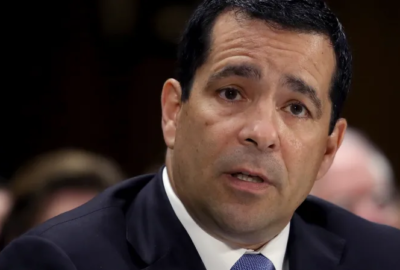
Agencies spending more repaying employees’ student loans
In today's Federal Newscast, the Office of Personnel Management says it's closely monitoring agencies' use of the student loan repayment program in a tough budget...
To listen to the Federal Newscast on your phone or mobile device, subscribe on PodcastOne or Apple Podcasts. The best listening experience on desktop can be found using Chrome, Firefox or Safari.
- Agencies spent nearly 5% more on student loan repayments for their employees in 2017 compared to the previous year. That’s according to the federal student loan repayment program from the Office of Personnel Management, which said it’s closely monitoring agencies’ use of the program in a tough budget environment. Agencies told OPM that student loan repayment incentives often helped them recruit for hard-to-fill mission critical positions. (Office of Personnel Management)
- The State Department’s Bureau of Consular Affairs has seen a slowdown in processing passport applications. Members of the National Federation of Federal Employees attribute it to an increased workload and a decrease in staff. Despite a 35% increase in applications over the past three years, the number of passport specialists has decreased, from more 1,400 to about 1,200. NFFE urged the agency to hire another 200 specialists to help keep up with demand. (National Federation of Federal Employees)
- Taxpayers can easily file their tax returns online, but the IRS still requires them to send back a paper form if they need to correct or amend their return. The Treasury Inspector General for Tax Administration said the agency will spend nearly $80 million over the next five years processing those forms, when it could have just allowed filing changes online. The agency watchdog has urged the IRS to expand e-filing to include these changes in time for next year’s filing season. (Treasury Inspector General for Tax Administration)
- There was a 6.2% growth in total program costs for the Army this year. That’s an $11.6 billion increase. The programs most responsible for the increase include the build up of a new Apache helicopter and the Joint Air to Ground Missile program. That price jump is due to the Army building 13 more than expected. The Joint Air to Ground Missile is another program that saw its price go up. The program’s cost swelled by 20% after a revised estimate on production costs. (Department of Defense)
- The Office of the Director of National Intelligence has a new head of cyber issues. Christopher Porter will be the National Intelligence Officer for Cyber at the National Intelligence Council. Porter comes to ODNI from FireEye where he was the chief technology officer for global cybersecurity policy. He also was a senior fellow at the Atlantic Council. In his new role, Porter will oversee the strategic analysis to support and advance ODNI’s mission, which includes cybersecurity, cyber operations and election security. He also will oversee the cyber portion of the National Intelligence Estimates and other documents to help advise and inform decision-making. (Atlantic Council)
- After three years, the Defense Department finally has an assistant secretary for health affairs. Thomas McCaffery is confirmed by the Senate to oversee military healthcare. McCaffery’s confirmation comes as the military is undergoing a massive overhaul of its medical organization, transferring their health facilities to the Defense Health Agency. The services are in the process of transitioning their health facilities to the Defense Health Agency and DoD is rolling out its new electronic health record system by 2023.
- The Department of Veterans Affairs wrongly denied or rejected a huge number of claims for emergency health care. The department’s inspector general said VA adjudicators inappropriately processed 31% of the claims they received for private ER care between April and September of 2017. Auditors aren’t certain how many veterans were asked to pick up the tab for the claims VA denied, but they estimate more than 17,000 were affected. The IG said the errors were partly caused by pressure from within the department to process claims as quickly as possible and a lack of quality control. (Department of Veterans Affairs)
- A prominent house lawmaker in the federal technology field will be leaving Congress. Rep. Will Hurd (R-Texas) announced he will not be seeking reelection in 2020. He said he’s looking to help serve his country in a different way without mentioning anything specific. The three-term congressman and former CIA officer played a major role in upgrading federal IT. He’s the author of the Modernizing Government Technology Act which became law in back in December 2017. (Rep. Will Hurd)
- The new federal mobility group has a growing to-do list. Over the next 90 days, the Federal Mobility Group will deliver to the CIO Council a series of recommendations and updates to advance how agencies take advantage of mobile devices and services. First, the group has until the end of September to revise the mobile application playbook, which hasn’t been updated since 2016. The playbook will address topics like 5G, security and enabling emerging technologies. Second, the Federal Mobility Group has until the end of October to come up recommendations on the policies, laws and regulations that need to be reconsidered, especially in light of 5G.
- The Justice Department said a relaunched FBI-led operation resulted in the arrest of several sex traffickers and the recovery of over 100 child victims. Operation Independence Day, a revamping of a previously successful program, was carried out in July through 161 operations nationwide. The operation included 86 FBI-led Child Exploitation and Human Trafficking Task Forces, along with the help of other federal, state, local, and tribal partners. Overall, more than 400 agencies participated in these task forces. (Department of Justice)
Copyright © 2025 Federal News Network. All rights reserved. This website is not intended for users located within the European Economic Area.
Eric White
Eric White is news anchor and Federal Drive producer at Federal News Network.
Follow @FEDERALNEWSCAST
Related Stories

VA’s plans for maintaining VistA spark cost concerns for new electronic health record
Federal News Network

OPM IT outage sparks Trump administration’s efforts to again make case for GSA merger
Related Topics
5G
Agency Oversight
All News
Christopher Porter
Cybersecurity
Defense
Defense Health Agency
Defense News
FBI
Federal Drive
Federal Mobility Group
Federal Newscast
Federal Student Loan Repayment Program
Health IT
Hiring/Retention
human capital
Justice Department
Management
Mobility
Office of Personnel Management
Office of the Director of National Intelligence
Pay & Benefits
People
Technology
Thomas McCaffery
Veterans Affairs
veterans health
Will Hurd
Workforce



